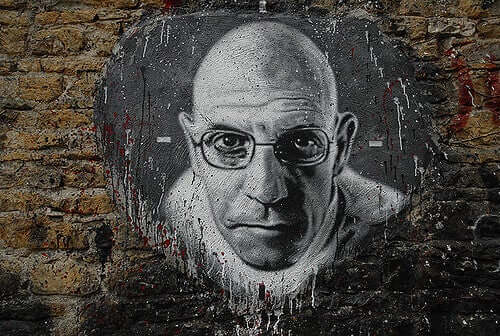Discover the biography of Michel Foucault, considered one of the great thinkers of the 20th century, philosopher, psychologist, social theorist and historian who has developed different ideas that have marked the French culture, however, his contributions crossed its borders and borders in the different scopes. fields in which he excelled.
Very prolific, he gained worldwide fame and notoriety thanks to his research on various topics, such as psychiatry. His studies on human sexuality, the health system and even social institutions are also noteworthy, with particular emphasis on prisons.
- This thinker.
- As well as an activist.
- Was a very agitated and active person in his research and studies.
- All this reflected in his work and in the intensity that characterized his life.
Foucault is a multidisciplinary author whose contributions remain very useful in various fields.
Michel Foucault was born in Poitiers, France, on October 15, 1926, as the son of a prestigious French surgeon, his family hoped that he would follow in his father’s footsteps, grew up in a family that valued education, considering that knowledge was fundamental to the person, this environment would lead him to attend very important schools, although he was not always an excellent student , has achieved academic success and recognition, but has also accumulated failures.
Foucault studied at the prestigious école Normande Supérieure, where the best thinkers and humanities specialists in France were formed; for Michel Foucault, however, his passage was tragic, as at that time he suffered from depression and attempted suicide on several occasions. for this reason, he received psychiatric treatment in his youth.
After contact with psychiatry as a patient, another great passion was born: psychology, his premature contact with this discipline led Foucault to study it in the academic field, he has a degree in psychology, in addition to his philosophical training, his prestige was so great that he remained a teacher at the same school in which he graduated.
In no time, he obtained a position as professor of psychology at the famous University of Lille, subsequently joining the Department of Philosophy at the University of Clermont-Ferrand to complete his doctorate. It was during this period that he wrote most of his works. his work in psychiatry, psychology and mental health. His studies on sexuality, politics, and social issues came after this phase.
Subsequently, the famous student revolts of May 1968 left an important mark on Michel Foucault, developing great political activism and bringing him into the Department of Philosophy of the Experimental University Paris VIII, founded at the time.
Finally, he was elected to the academic body of the Collége de France, a prestigious position that allowed him to travel the world giving lectures and lectures, which increased his participation in political life.
At that time he was accused of changing his mind and ideas, something he defended and considered a normal fact when it came to acquiring knowledge and experience, however, this led him to destroy much of his work and prohibit the publication of the remaining writings. .
Finally, after a lifetime of emotional fluctuations and a great dedication to study and research, Michel Foucault died of aids complications in 1984.
“Knowledge is the only space of freedom to be. “Michel Foucault?
Michel Foucault has identified deficiencies in the main currents dealing with psychopathology, in particular psychoanalysis, phenomenology and Evolutionism, and subsequently based his theory on the overall interpretation of mental illness, starting from two new points of view: cultural and social.
For Foucault, power is in all areas of society and, therefore, proposes the analysis of existing power relations in the social environment, in his opinion, he saw in philosophy and research analytical weapons that could bring about changes in society. , believes that the role of thinkers is to contribute to society.
Foucault analyzed how the psychological individual was built from the three fundamental knowledge of man:
The thinker went further in his research providing a new historiographical component, that is, he decided to explain how certain problems have been addressed throughout history and, in this way, he was able to check and explain the changes that occurred during different periods. A diacritical view of a problem provides an objective view of the same fact in the present.
How has madness been addressed throughout history?And sexuality, what conclusions can we draw from this? All this was reflected in his works, among which are: History of madness in the classical era, Words and Things, Archaeology of Knowledge, Follow-up and Punishment, History of Sexuality, The Birth of the Clinic, etc.
Analyzing the biography of Michel Foucault, we see that he was really one of the great thinkers of France of the last century; his thinking greatly influenced the philosophy and psychology of the twentieth century; In addition, many of his works continue to be published and have a great impact on today’s society.

